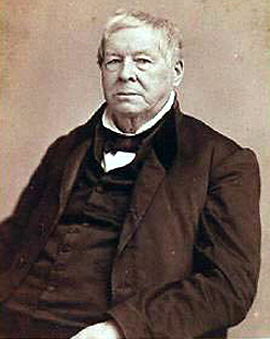Garrett, Thomas (1789-1871), was an American businessman and abolitionist. In the early 1800’s, Garrett became involved in antislavery causes. He later became a leading organizer for the underground railroad. The underground railroad was an informal system that aided enslaved people who fled to the northern United States, Canada, and other places that prohibited slavery.

Garrett was born on Aug. 21, 1789, in Upper Darby, Pennsylvania. During his youth, Garrett worked on his family’s farm and mills. Garrett and his family were members of the Society of Friends, or the Quaker religion. The Quakers had long objected to slavery. According to a family story, Garrett became involved in the antislavery movement in 1813, after helping rescue a family servant who had been kidnapped to be sold into slavery. In 1822, Garrett moved to Wilmington, Delaware, where he became a successful hardware merchant.
Garrett soon began working with abolitionists in the Philadelphia and Wilmington areas. He helped organize efforts to raise funds and to find transportation and lodging for people escaping from slavery. The Garrett home also became a station on the underground railroad. In 1848, a federal court found Garrett and an associate guilty of aiding the escape of several enslaved people. Garrett was fined and lost much of his property. However, he did not stop his efforts to aid travelers on the underground railroad. During his trial, Garret defiantly declared: “if any of you know of any slave who needs assistance, send him to me.” He claimed that, by 1865, he had helped more than 2,000 enslaved people reach safety in the North.
In 1870, the 15th Amendment to the Constitution of the United States made it illegal for the government to deny voting rights on the basis of race. In celebration of the amendment, African Americans drove Garrett through the streets of Wilmington in an open carriage. They called him “Our Moses,” after the Biblical figure who led the Jews from Egypt. Garrett died in Wilmington on Jan. 25, 1871.
